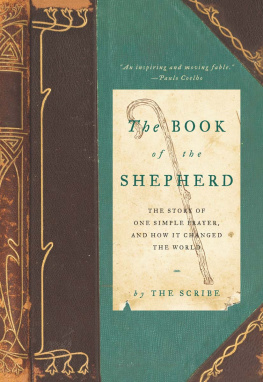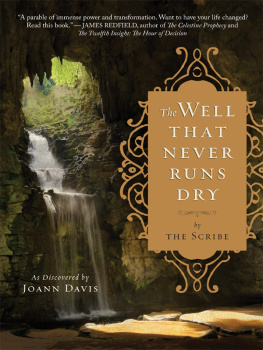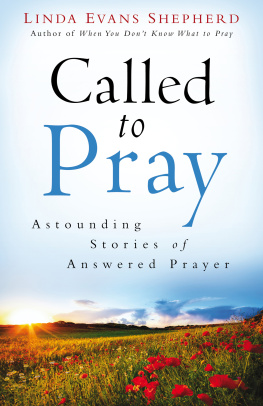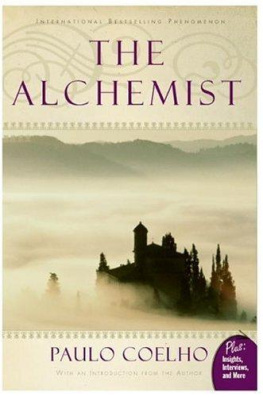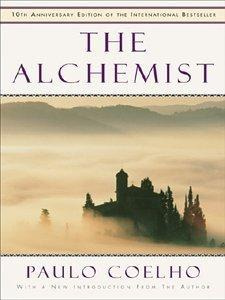The Book of the Shepherd
The Story of One Simple Prayer, and How It Changed the World
By the Scribe
As discovered by Joann Davis
With illustrations by Sudi McCollum

For the recklessly generous
and the relentlessly kind
For Kenny, Jenny, and Colin
Contents
T HE CIRCUMSTANCES SURROUNDING The Book of the Shepherd are rareeven mysterious.
They began in 2007, when I bought an old farmhouse in Dorset, Vermont, from the estate of Professor Orlando Roberts, a distinguished teacher of classics at nearby Bennington College. The professor, a bachelor, had lived alone in the house for nearly fifty years. Upon signing the purchase agreement, I learned that he had no heirs and had stipulated that the contents of his house become the property of whomever bought it.
To be honest, I had no idea what I was getting myself into. In the euphemistic language of real estate, the place was a fixer-upper. In truth, it was a wreck. Full of leaky faucets and creaky doors, the house was also a cache of files, trunks, books, and portfolios scattered about in nearly every room. Weeding out the old professors study alone looked like a job that was going to take several days.
It was in the study that I found it. Bound in vellum, the book had an image of a shepherd pressed into it. I later learned that the text was written in an unusual hybrid of Middle English and Dutch. Tucked inside the pages was a piece of Professor Robertss personal stationery bearing the words, Purchased in Old Barn Bookshop, Route 7. Must get translated.
The note was dated December 25,2007, a poignant Christmas for all in the historic village of Dorset, it turned out, because it was the day that their long time neighbor Old Orly died at his desk, poetically slumped over a stack of holiday greeting cards, in front of the fireplace. Old Orlys heart, known for its warmth and generosity, had simply given out.
Needless to say, I was stunned, mystifiedand possessed of an obligation to do as Professor Roberts had intended. Securing translation experts from some of the greatest universities, I spent a year readying this work for publication.
Was it worth my time? Each reader must decide.
J OANN D AVIS
Dorset, Vermont, 2008

H E WAS A SMALL BOY, AS TENDER-HEARTED and as innocent as a spring lamb. He was a good boy, who said his prayers and respected his elders. But on this day, he was a frightened boy who was about to feel the white hot sting of a switch across the back of his legs.
Please, Father, the boy cried out, have mercy on me.
But the man was angry. He had asked the boy to rise at dawn to stock the market stall with fresh fruits and vegetables. The boy was eager to honor his fathers wishes but had overslept. Now the market was teeming with customers and there was no food.
No olives or figs? asked a perplexed woman with a basket on her back. No raisins or honey? What trick is this?
The merchant tried to appease the woman, telling her to return later in the day for the sweetest delights at the lowest prices. But when she emptied her coin purse at a competitors stall, the merchant exploded.
You lazy boy, he said, grabbing his son by the throat and throttling him. You take bread from my mouth. Now I must teach you a lesson you will never forget.
As the hot sun beat down, the marketplace was springing to life. Weavers were bartering with their customers. Potters were spinning at their wheels. And friends walked arm in arm through the market aisles, laughing and chatting.
But there was no joy for the merchantonly blind rageas he took a switch usually reserved for a reluctant donkey from the back of his wagon.
You stupid boy, he cried as he prepared to strike. My laws must be obeyed.
Like a storm at sea gathering strength, the mans anger became uncontrollable. Lashing out, he knocked the boy to the ground, bruising and battering him. The child rolled away, trying to evade the stick, but it kept biting his flesh in a relentless flurry of blows.
The scuffle jolted the still-sleepy market like a rude rooster. A lethargic public was soon aroused and many began streaming to the food stall where the beating was happening. Some were chanting, Beat the boy! Make him pay.
Only one in the crowd seemed to have the child in mind.
A shepherd who had been at the market well watering his sheep had dropped everything and rushed to the scene when he heard what sounded like a crying child. He had left his animals alone at the trough to go and help.
But along the way, the shepherd became trapped in the throng, slowed by rowdy hecklers, jeering spectators, and curiosity seekers. As he tried to elbow his way forward through the thick press of sweaty bodies, he heard an old man quoting the law for filial infractions, saying woe betide the child who disobeys his father.
When the shepherd finally broke through, he saw what he did not wish to imagine. The boy was in the dirt beneath the merchant. Still animated, still chasing him, the merchant continued to strike as the boisterous crowd made known its bloodthirsty wishes.
Beat him! someone shouted. Beat him!
The boy was grimacingtrying to squirm awaybut there was no escaping the cruel switch. Whipping through the air, scourging him, the stick nipped the boys tender skin the way the thorny bramble often gashed the flesh of lambs gamboling in the wilderness.
The shepherds first impulse was to stop the madness, to lunge forward to protect this boy. He wanted to grab the switch from the merchants hand and bring the cruelty to an abrupt halt. But he hesitated, questioning himself, asking what standing he had in this matter. Did the law not permit harsh measures? What would the elders say?
The thoughts were flashing through his head like intense lightning bolts across a torrid summer sky.
And then, shaking him from his stupor, he heard the boy cry out, Mercy, Father, a wail that pierced both the air and the shepherds heart. And then he knew.
No one had the right to cause this boy to suffer so.
No law permitted this pain to be inflicted.
Taking hold of himself, the shepherd broke through the crowd to go to the boys aid.
But it was too late. Without warning, the merchant had put down his switch. Pure and simple, he had grown tired of beating the boy. Hot and spent, he simply laid down the stick and went to get himself a drink of water.
The crowd, disappointed that the action was over, slowly dispersed. Rushing forward, the shepherd went to assist the boy, who was still on the ground. Biting his lip, fighting back tears, the boy tried to be strong as his father had taught him to be. Gamely collecting himself, he rose to his feet and accepted a sip of water from the shepherds pouch before letting the kind man tend to his cuts and welts. Little was said by either, but much was shared by both before the boy went on his way.
That night, when the merchant broke bread, his brother asked him about his day. Very ordinary, the man said. No different from any other.
S TONE THE BUILDER WHO ERECTS A house that falls on its occupants.
Sever the hands of the criminal who pilfers livestock or grain or anothers garment.

